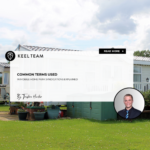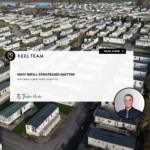Investing in Mobile Home Parks: Utility Infrastructure Guidelines
-
 Tristan Hunter - Investor Relations
Tristan Hunter - Investor Relations
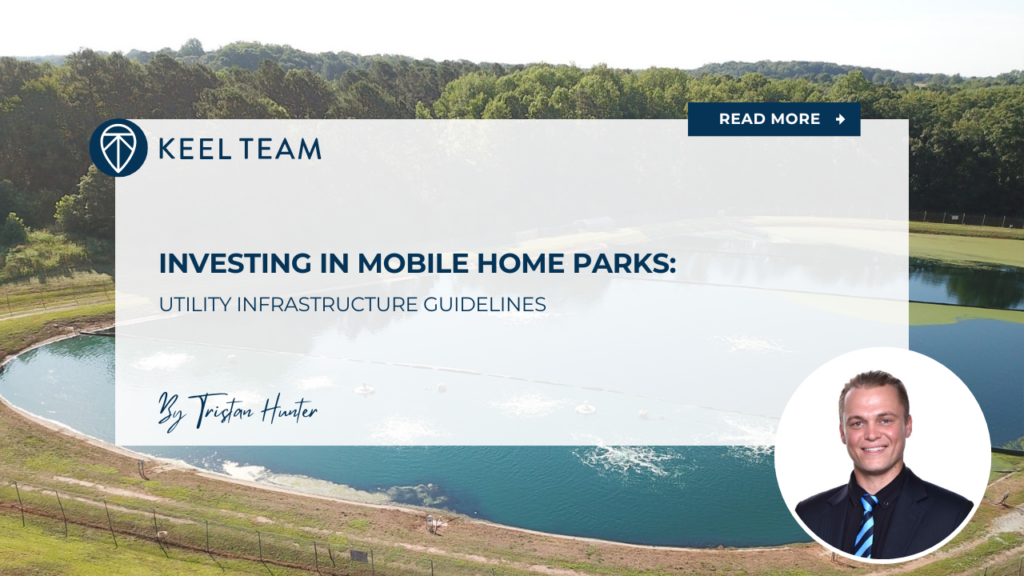
Investing in mobile home parks involves more than just purchasing land and collecting lot rent. One of the most important factors influencing both risk and long-term profitability is utility infrastructure. The type of utility systems in place can impact maintenance costs, legal compliance, and overall property value.
Understanding how utilities function in mobile home parks, their potential risks, and the best management strategies can help investors make informed decisions. This guide explores the key utility considerations—sewer, water, electricity, and gas—and how each system can affect mobile home park operations.
Sewer Systems in Mobile Home Parks
A mobile home park’s sewer system plays a crucial role in maintaining health and safety standards. Sewer infrastructure varies between properties, and each system comes with its own set of risks and maintenance responsibilities.
1. Lagoon Systems
Lagoon systems use large ponds to treat wastewater naturally. While cost-effective, they require extensive land, regular upkeep, and strict environmental compliance. If a lagoon system fails or becomes contaminated, the consequences can be costly and legally complex.
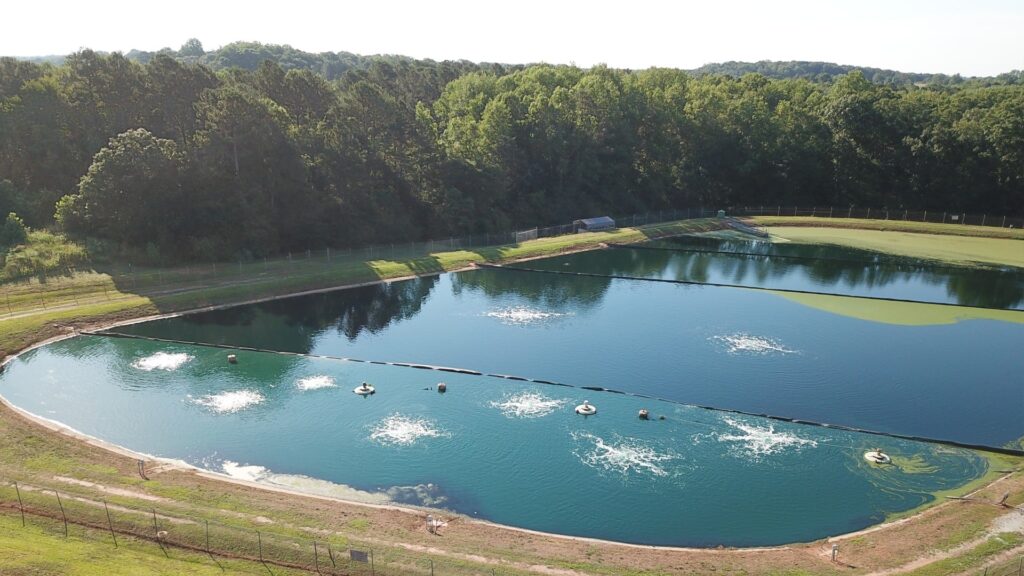
2. Private Wastewater Treatment Plants
Some mobile home parks have private wastewater treatment facilities, which process and clean sewage before discharging it. These systems generally allow for greater control over water quality but demand continuous maintenance, regulatory oversight, and high operational costs. Mismanagement can lead to environmental fines or system breakdowns.
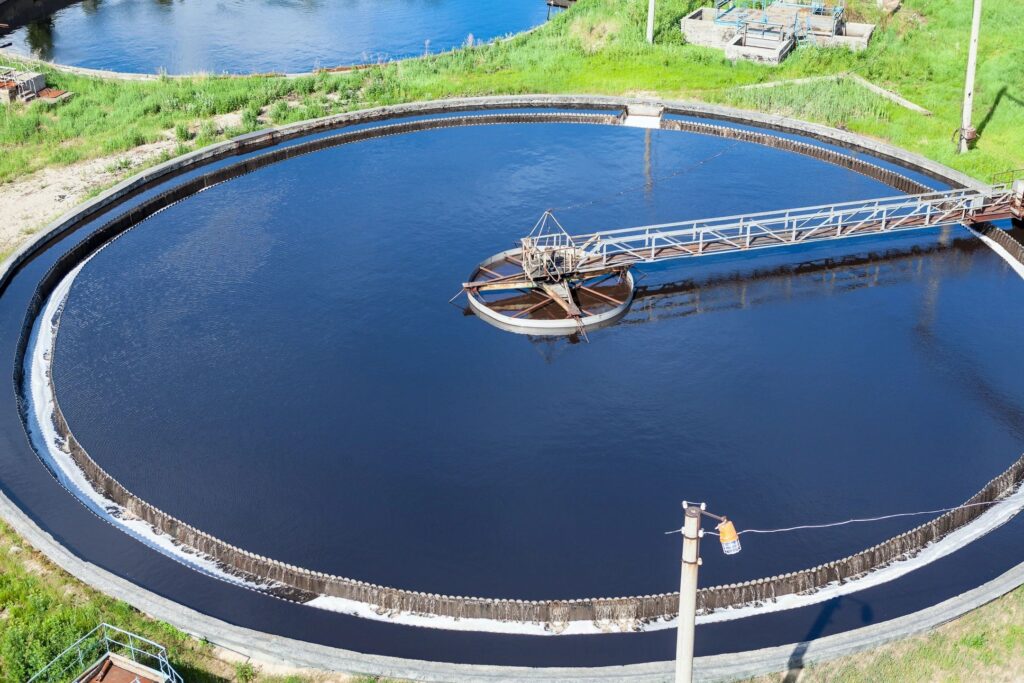
3. Septic Systems
Septic systems are common in rural mobile home parks where municipal sewer connections are unavailable. Each home has its own tank, requiring regular pumping and maintenance to prevent leaks or overflows. While less complex than treatment plants, septic failures can be expensive to repair.
4. City Sewer Connections
City sewer connections are the most reliable option for mobile home parks. When connected to municipal sewage, the local government handles wastewater treatment, reducing the owner’s maintenance burden. However, this convenience often comes at a higher monthly cost for sewer services.
Download our FREE eBook on the Top 20 things to know BEFORE investing in mobile home parks!
Water Utility Considerations
Water is a fundamental necessity in any mobile home park, and how it’s delivered can impact operational efficiency and risk exposure.
1. Well Water Systems
Some mobile home parks rely on on-site wells for water supply. While well water eliminates monthly municipal fees, it introduces potential risks related to water quality, contamination, and ongoing testing requirements. Owners must comply with health regulations to ensure residents have safe drinking water.
2. City Water (Master Metered)
With a master-metered system, the mobile home park receives water from the city through a single meter. The owner is responsible for internal water distribution, leak detection, and resident billing. This setup provides access to municipal water but increases administrative tasks and potential infrastructure repair costs.
3. City Water (Direct Billed)
In a direct-billed system, each home has its own water meter and receives individual bills directly from the utility company. This setup eliminates owner responsibility for water quality, distribution, and billing, making it the least risky option. However, infrastructure costs may be higher to set up individual connections.
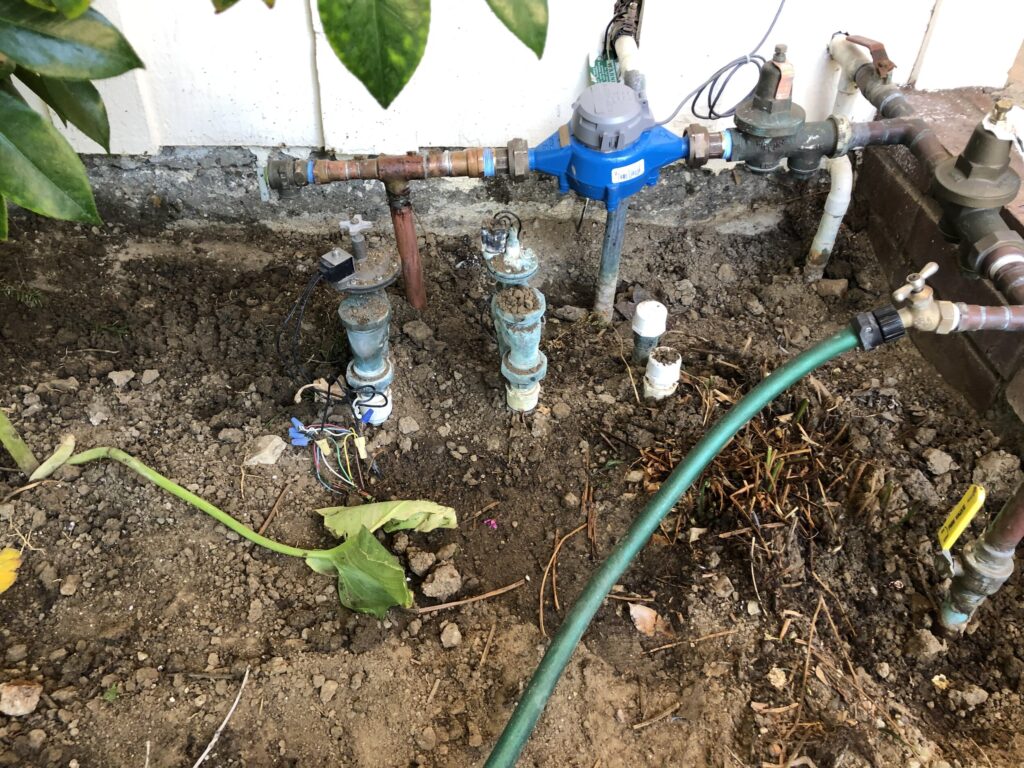
Electricity in Mobile Home Parks
Electrical infrastructure can either be an owner-managed system or a direct-billed setup where residents handle their own accounts.
1. Master-Metered Electricity
In master-metered systems, the mobile home park has one main meter, and the owner distributes power to individual homes. This means the owner:
- Pays for electricity usage upfront.
- Bills residents based on their consumption.
- Is responsible for maintaining electrical lines and resolving power issues.
While master-metered electricity provides control over rates, it also comes with risks, such as billing disputes, infrastructure failures, and increased liability.
2. Direct-Billed Electricity
In this setup, each home is individually metered and billed by the power company. This method eliminates billing disputes, maintenance obligations, and infrastructure responsibilities, reducing overall risk for the mobile home park owner.
Gas Infrastructure in Mobile Home Parks
Gas supply is another important utility consideration, with different systems affecting risk and operational complexity.
1. Master-Metered Gas
Like master-metered electricity, a single gas meter supplies the entire mobile home park, and the owner distributes gas to residents. This setup requires handling distribution, billing, and infrastructure repairs. Gas leaks or faulty lines can pose significant safety concerns, adding to the complexity of ownership.
2. Individual Propane Tanks
Some mobile home parks use propane tanks for each home, allowing residents to purchase their own fuel. This system can reduce owner responsibility, but residents must handle their own gas refills, which can be inconvenient and expensive.
3. Direct-Billed Gas
With direct billing, each home connects to the municipal gas supply and is billed individually. This arrangement removes the mobile home park owner from gas-related responsibilities, lowering liability risks. However, like direct-billed electricity, setup costs may be higher.
Managing Utilities to Reduce Risk
While utilities are essential for mobile home park operations, poor management can lead to costly repairs, regulatory issues, or resident dissatisfaction. Here are strategies to minimize risk and maintain efficiency.
1. Regular Inspections and Maintenance
- Schedule periodic checks for leaks, system failures, and efficiency issues.
- Conduct annual water testing if using a well system.
- Ensure septic tanks or treatment plants are pumped and maintained on schedule.
2. Understand Local Regulations
Each state and municipality has its own laws governing utility systems in mobile home parks. Owners should stay informed about compliance requirements to avoid penalties or service disruptions.
3. Upgrade Outdated Infrastructure
Aging pipes, electrical lines, and sewer systems can increase maintenance costs and pose safety hazards. Investing in infrastructure upgrades can improve efficiency, reduce long-term costs, and attract tenants looking for a well-maintained community.
4. Consider Utility Pass-Through Models
Many mobile home park owners prefer direct-billed utilities, where residents pay providers directly. This model removes the owner’s liability and ensures that utility expenses are passed through fairly.
Final Thoughts: Utility Infrastructure and Investing in Mobile Home Parks
The type of utility systems in a mobile home park can significantly impact operating costs, risk levels, and long-term valuation. While city-connected utilities provide stability, well water, septic systems, and master-metered electricity introduce additional responsibilities.
Investors should assess utility setups carefully before investing in mobile home parks, ensuring they understand both short-term operational demands and long-term investment implications. With the right approach, utility management can be a strategic advantage, helping owners create a stable and efficient community while optimizing their investment potential.
Are you looking for MORE information? Book a 1-on-1 consultation with Andrew Keel to discuss:
- A mobile home park deal review
- Due diligence questions
- How to raise capital from investors
- Mistakes to avoid, and more!
Disclaimer:
The information provided is for informational purposes only and is not investment advice or a guarantee of any kind. We do not guarantee profitability. Make investment decisions based on your research and consult registered financial and legal professionals. We are not registered financial or legal professionals and do not provide personalized investment recommendations.

Tristan Hunter - Investor Relations
View The Previous or Next Post
Subscribe Below 👇



